Are you planning to travel with a minor and need to give permission for their trip? A travel consent authorization letter is an essential document that outlines your approval and ensures a hassle-free experience at borders or when dealing with authorities. This letter helps clarify who has the authority to act on behalf of the child while away, making it a crucial piece for any guardian. Keep reading to discover a simple template and tips for crafting your own travel consent letter!
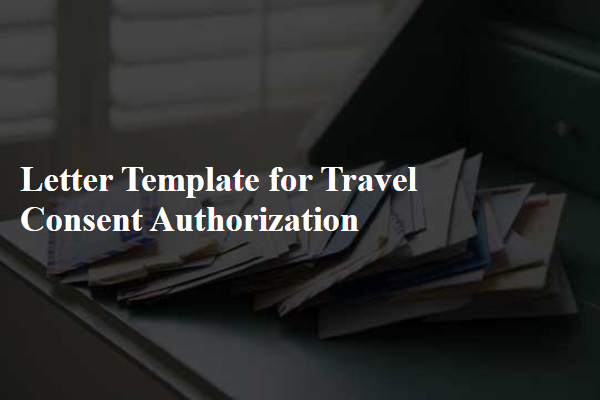
Full Names and Birthdates of Minors
Travel consent authorization is often necessary for the legal guardians of minors, such as children and teenagers, to ensure their welfare during travel. Key elements include the full names and birthdates of each minor, providing a clear identification for legal scrutiny. For instance, a minor named Emma Johnson, born on May 15, 2010, and her brother, Liam Johnson, born on November 8, 2012, must be explicitly mentioned in the consent document. This information assures airlines, border control authorities, and any involved agencies of the minors' identities, thus safeguarding their travel rights and counteracting potential abduction issues. Moreover, including contact information, travel itinerary, and temporary guardianship details enhances the document's credibility and effectiveness.
Travel Itinerary Details
Travel itineraries encompass essential details about a planned trip, including departure and arrival dates, flight numbers, and transit information. A well-structured itinerary often includes the departure city, such as New York City (JFK), and the destination city, like London (LHR), ensuring clarity. Accommodations play a critical role, with hotel names and addresses, for instance, Hilton London Metropole, listed for convenience. Activity schedules, including guided tours or museum visits, add further context, possibly noting entry times or group sizes. Critical documents should accompany these itineraries, including consent forms for minors traveling without guardians, as required by airline policies, ensuring compliance with legal regulations.
Consenting Parent/Guardian Information
Travel consent authorization can often be crucial for ensuring safe travel arrangements for minors. An effective travel consent form must include comprehensive details about the consenting parent or guardian, such as their full name, relationship to the child, and contact information. It should also specify the child's full name, age, and any significant travel details, including destination, travel dates, and mode of transportation (such as airplane, train, or car). Having a clear, signed consent statement permitting the child to travel accompanied or unaccompanied can prevent complications at borders or during emergencies. Utilizing a notary public to validate the consent may also enhance its legality and acceptance by authorities.
Authorization Statement and Purpose of Travel
Travel consent authorization is essential for minors traveling without their parents or guardians. This document outlines the authorization from parents or legal guardians granting permission for a child to travel. Specific details included in this statement are the minor's full name, date of birth, passport number, and travel itinerary. It includes the destination and duration, such as a trip to Cancun, Mexico, for one week. The authorization also states the accompanying adult, typically a family member or friend, providing their identification details, which may include passport information. The document aims to ensure that all legal requirements are met and that the minor's rights and safety are protected during travel.
Notarized Signature and Date
Travel consent authorization is essential for minors traveling unaccompanied or with a guardian. A notarized document (certificate confirming the authenticity of signatures) contains essential details such as the child's full name, date of birth, and travel itinerary specifying destinations (cities or countries). It requires signatures from both parents or legal guardians, including a notarized signature (officially witnessed and authenticated) to enhance validity. The document should also state contact information of guardians (addresses and phone numbers) in case of emergencies. Notarization adds a layer of legal protection, ensuring compliance with international travel regulations and preventing potential issues with authorities during travel.
Letter Template For Travel Consent Authorization Samples
Letter template of travel consent authorization for non-parent guardians
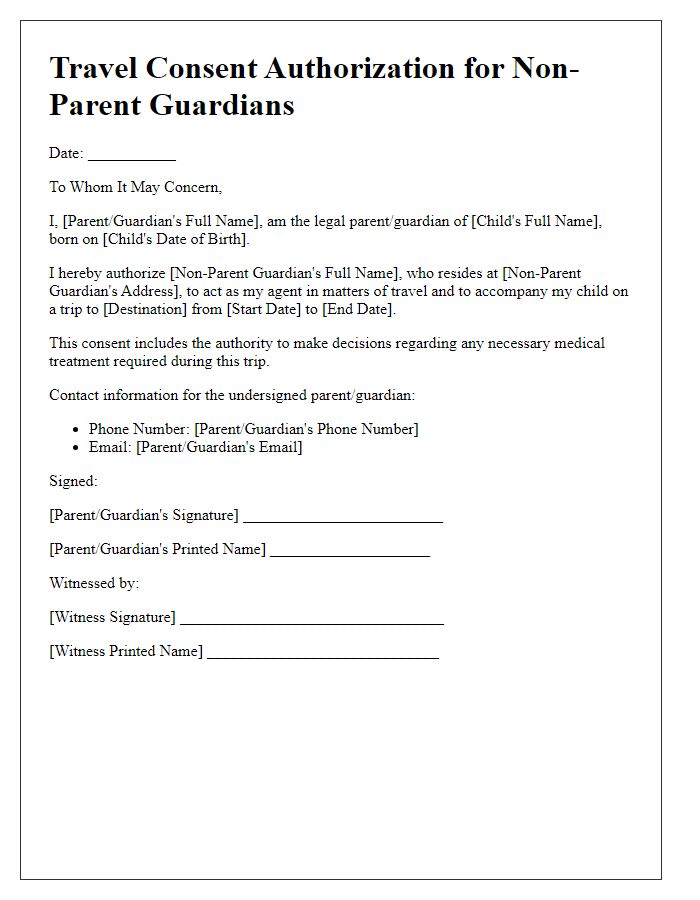
Letter template of travel consent authorization for shared custody arrangements
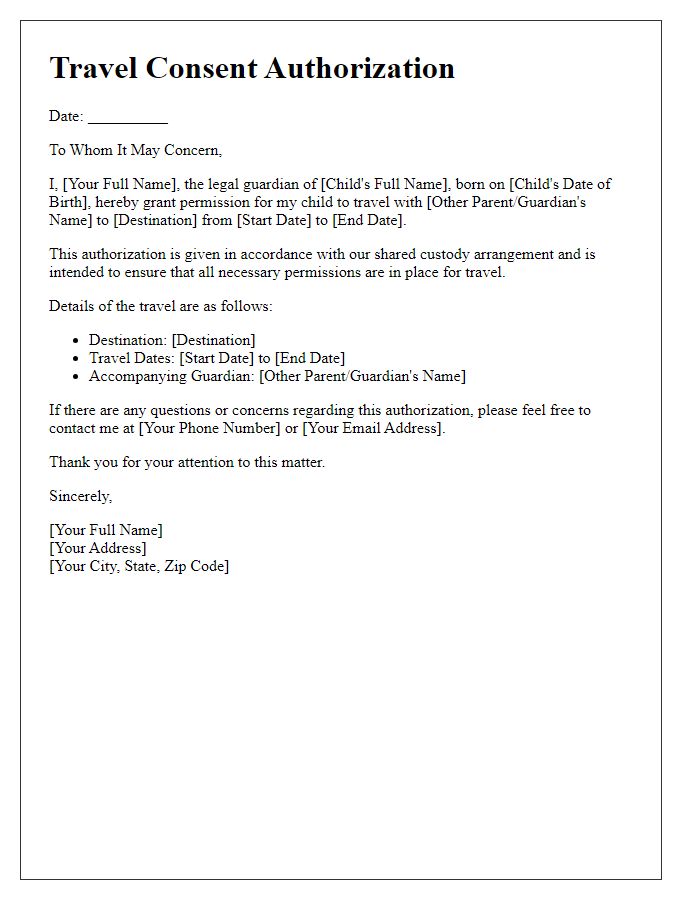

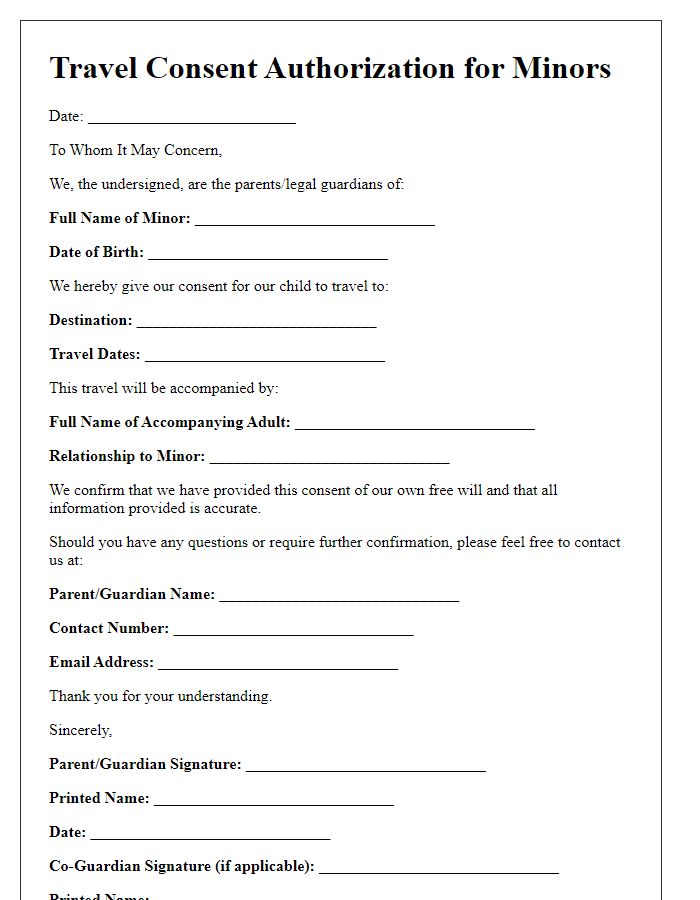
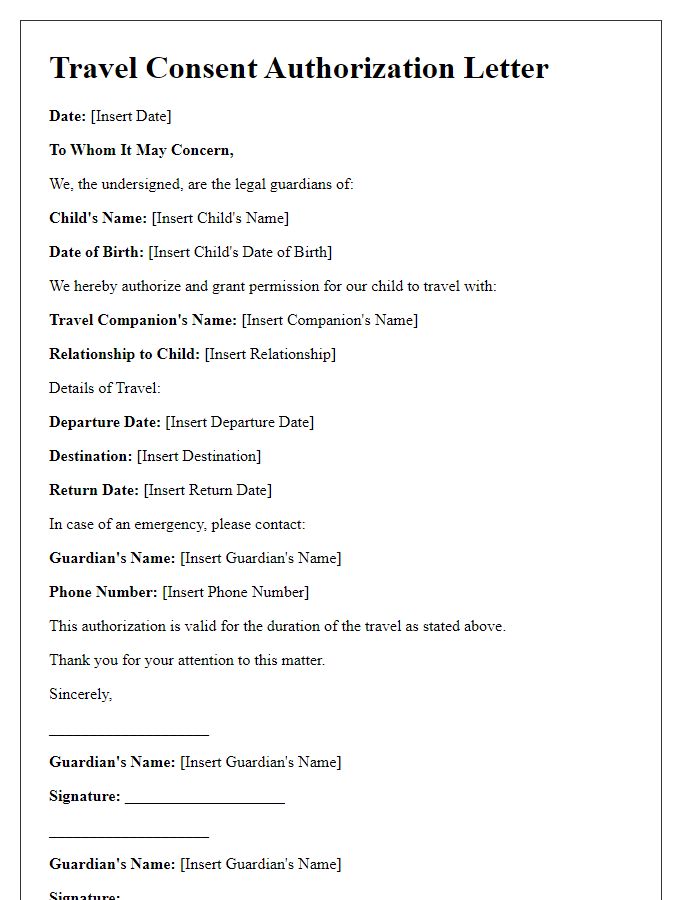
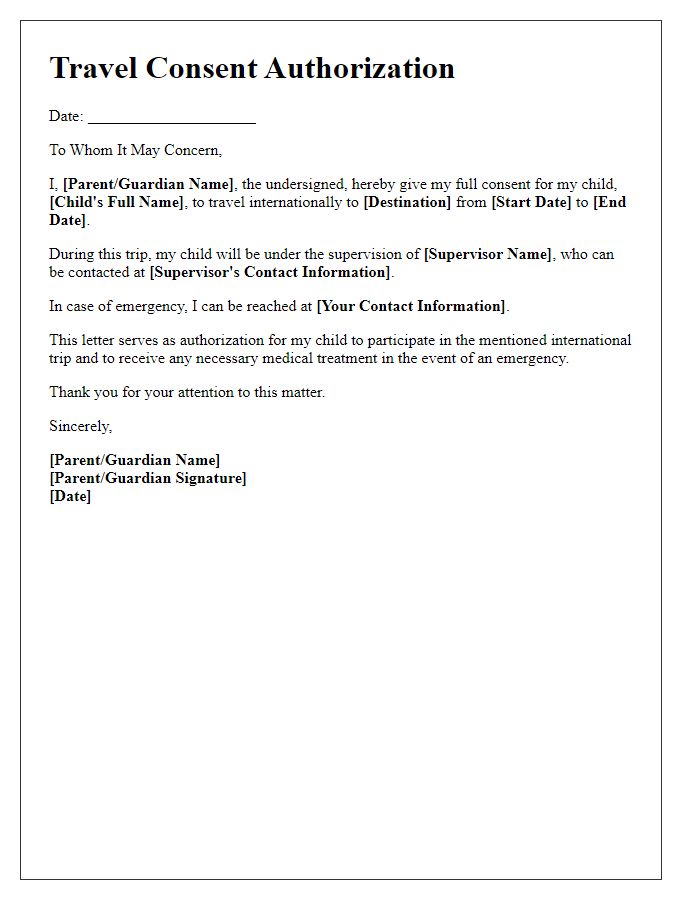
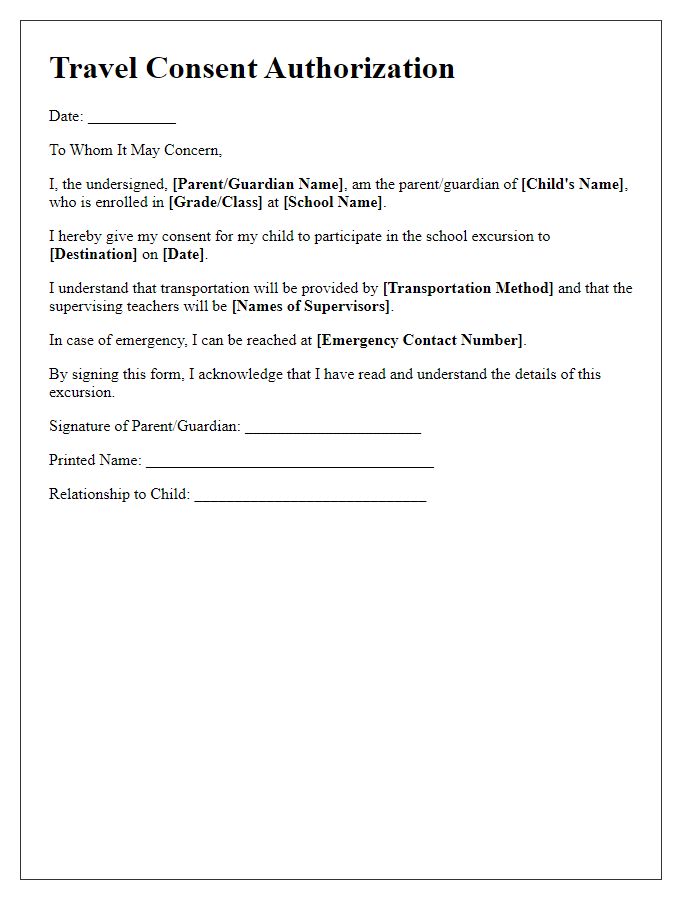
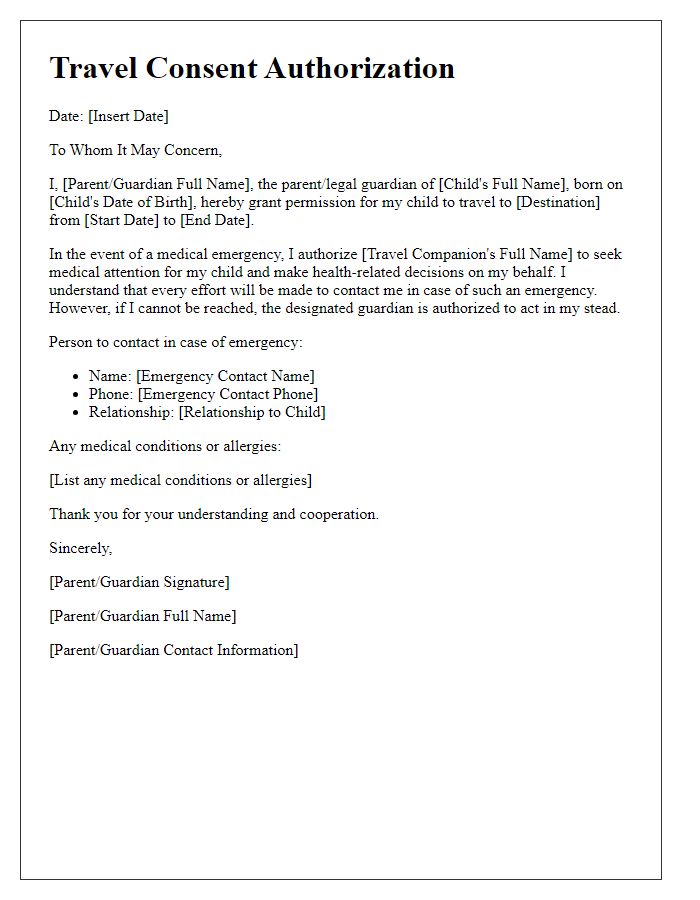
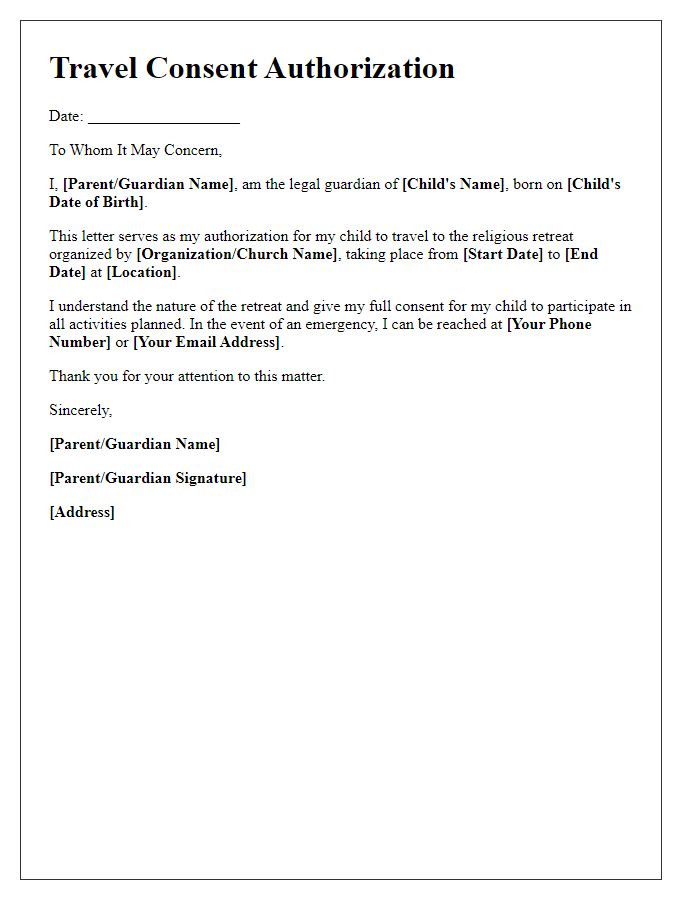
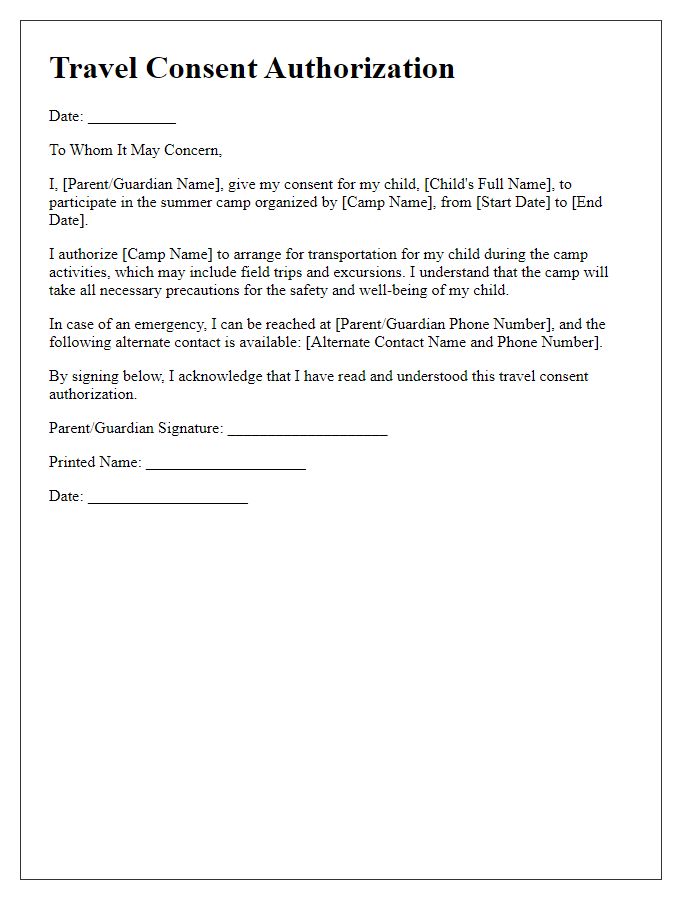
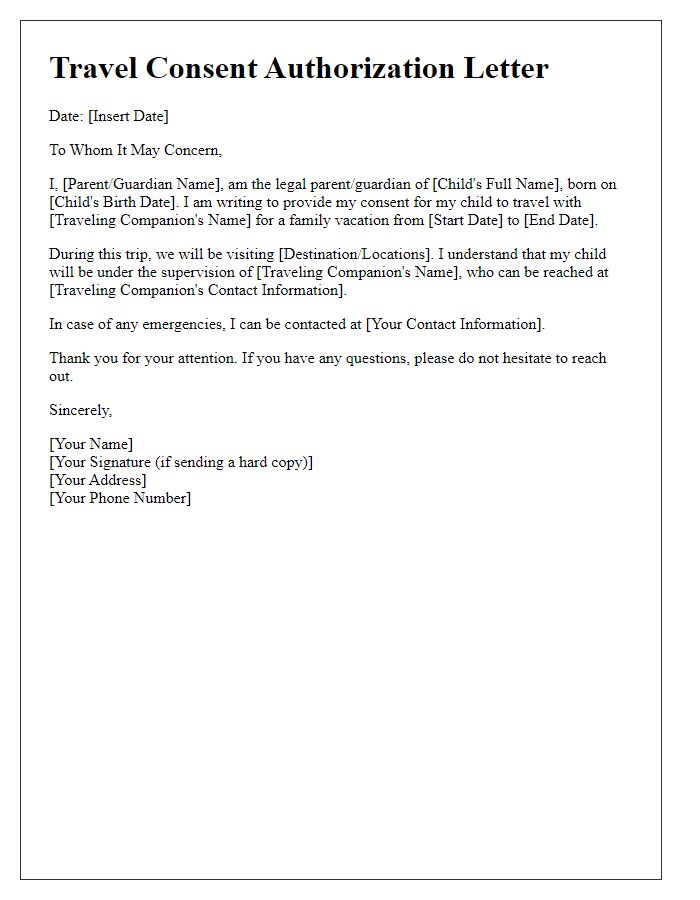

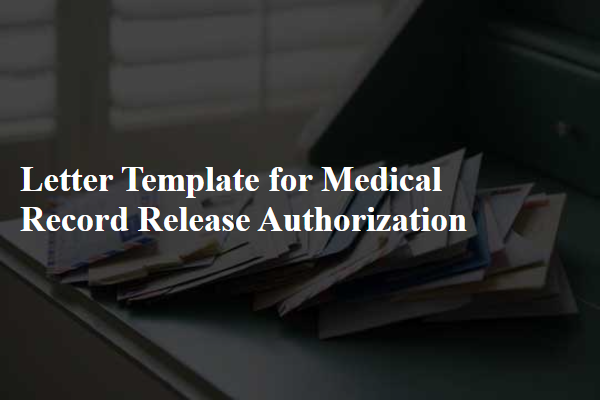
Comments